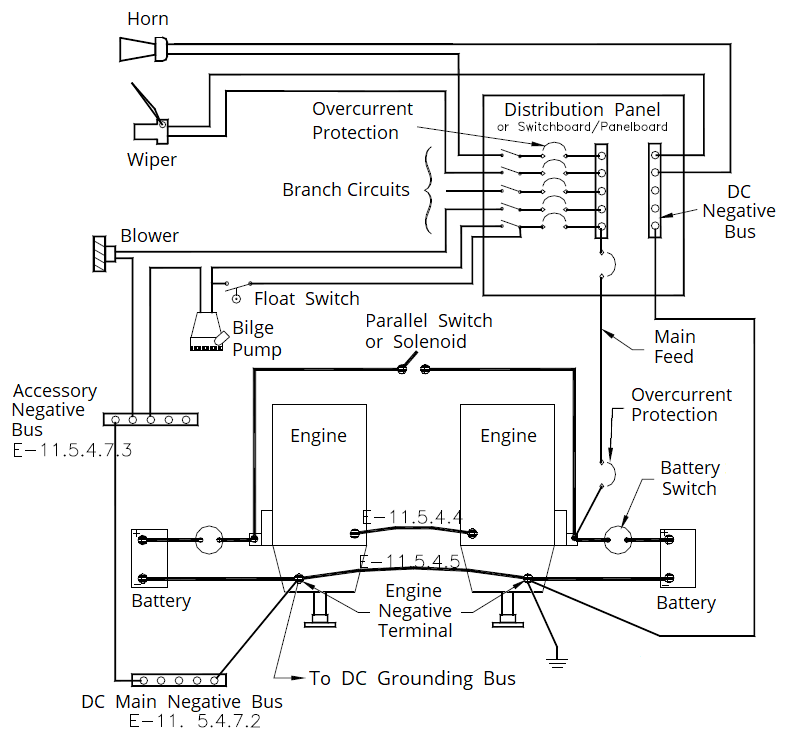Seakeeper 40 Installation Manual (90715-2) 40-234-0043 to Current
3.3 Electrical Equipment Ground Connections
Seakeeper to Vessel Ground Connection Instructions
- Connect the Seakeeper foundation to vessel ground.
- Install Ground Cable (10 AWG or 6.0 mm2, Customer supplied) from the M6 brass ground stud on the Seakeeper rear foundation (Figure 23) to a suitable vessel ground. The ground cable should be installed on the inside rear of the foundation as shown below. If possible, install ground cable prior to installing the Seakeeper into the vessel. If there is no access to the ground stud from below the rear of the Seakeeper once installed, the rear cover, upper rear cover, and GCM bracket will need to be removed to access the ground stud from above the Seakeeper.

NOTE: USE ONLY THIS LOCATION FOR GROUNDING THE SEAKEEPER TO THE VESSEL GROUND.
2. Install Ground Cable (10 AWG or 6.0 mm2, Customer-supplied) from the M6 brass ground stud on the
Seakeeper rear brace to a suitable vessel ground.
- EN/IEC 90204-1 Clauses 6.3.3 and 8.2.3
- ABYC E-11 July 2018 Clauses 11.5.2 and 11.16.1.
3. Ground connection should be made with vessel bonding system, if available. However, the ground is not
referring specifically to a bonding system but for outboard boats generally refers to the outboard engine
negative terminal. Per ABYC E-11 (2018), Clause 11.5.2.7.4: If the negative side of the DC system is to be
connected to the ground, the connection shall be made only from the engine negative terminal, or its bus,
to the DC grounding bus. This connection shall be used only as a means of maintaining the negative side of
the circuit at ground potential and is not to carry current under normal operating conditions.
4. A proper ground connection is critically important for corrosion protection and helps to ensure the
ignition protection of the unit by ensuring it does not carry any stray current.

ABYC E-11, figure 4A